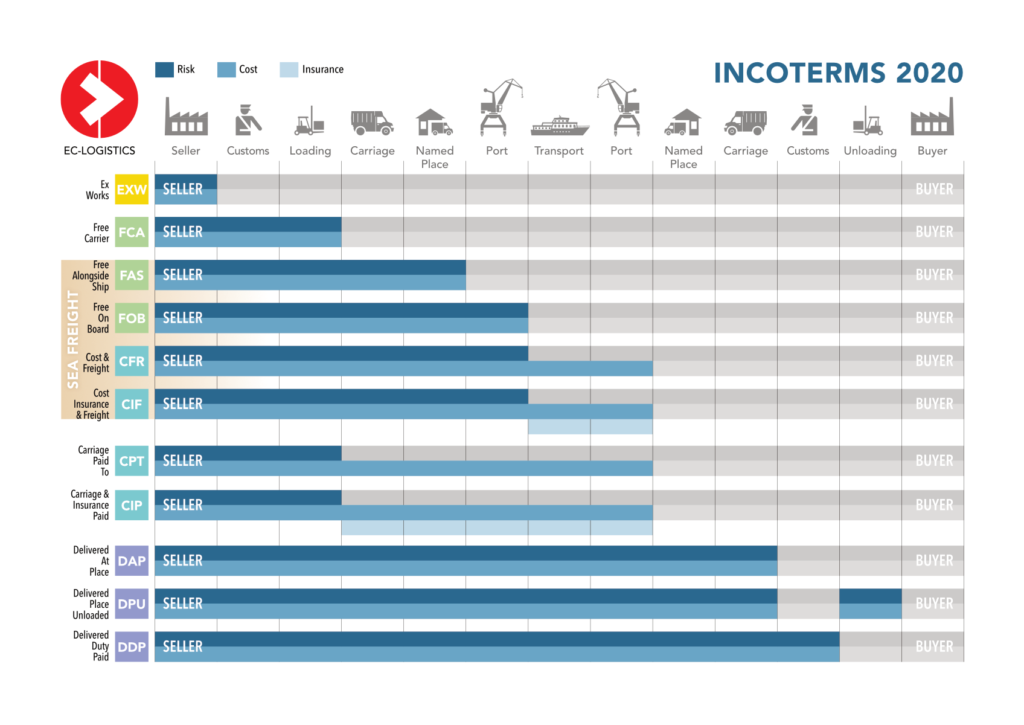Know-it-all
What is INCOTERMS
INCOTERMS stands for "International Commercial Terms". It is a set of 11 rules that were published back in 1936. They aim to eliminate the problems associated with the differences in trade law between countries. They define who is responsible for what during international transactions - how buyers and sellers share costs, risks and liability during transportation, who arranges transport, insurance of goods, procuring shipping documents and export or import licenses, ...
THE INCOTERMS rules do not specify the goods sold, do not deal with issues of transfer of ownership or entitlement to the goods sold, do not deal with the payment of the purchase price. They do not replace the purchase contract, they can only become a part of it. INCOTERMS is not a treaty and do not apply as an international practice. The new terms and conditions will apply to your contractual relations only if you agree with the contractual partners and refer to one of the new Incoterms 2020 delivery terms, for example, in the contract of transport.
Incoterms are set by the International Chamber of Commerce (ICC) and are used worldwide. They refer in particular to the UNITED NATIONS Convention on Treaties on the International Sale of Goods. They are adjusted every 10 years. The previous version has been in place since 2010 and from 1 January 2020 the new rules apply (already the sixth revision) - INCOTERMS 2020. You can quickly navigate them using our clear scheme:
Incoterms Groups
INCOTERMS are divided into four groups (C, D, E, F) - according to fees, risk, liability for formalities and for problems related to import and export.
In Group C (Main Carriage Paid), it concludes a transport contract with the forwarding company and bears the seller's costs. In this case, the seller is responsible for the export customs clearance. The risk is passed on to the buyer at the time of dispatch of the goods. The buyer is responsible for all matters arising after loading the goods related to the transport and other events. Group C includes the following Incoterms rules: CFR, CIF, CPT, and CIP.
Group D (Arrival) assumes that the seller is obliged to deliver the goods to a specific place or port of destination. This group includes Incoterms as DAP, DPU and DDP.
In group E (Departure), the seller makes the goods available to the buyer at the place of delivery designated by the seller. The seller is not obliged to check customs or export and does not bear the risks or costs of loading. Only Incoterms EXW exists in group E.
Main Carriage Unpaid (F) obliges the seller to carry out an export customs clearance. The seller does not pay shipping and insurance costs. This group includes FCA, FAS and FOB.
We will add more detailed comments on some rules in separate articles.

